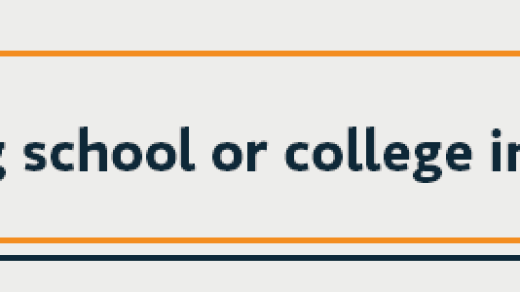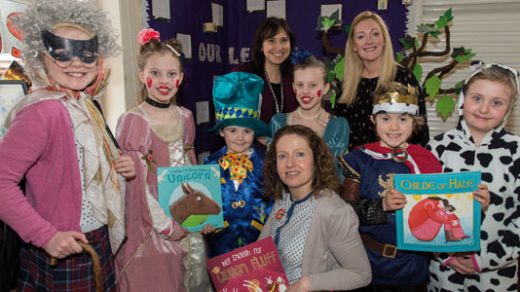Playing Catch-up: Learning after Lockdown

In February of this year, the government announced new measures to help support children and young people catch-up on missed learning and development due to the pandemic.
Since 8 March, all students have returned to face-to-face education but before that, the majority of teaching and learning was behind a computer screen and buzzwords such as home-schooling, Google classroom, Microsoft Teams and ‘bubbles’ became synonymous with the lockdown period.
The £700 million package for England (£300 million of which was pledged in January) includes an expansion of one-to-one and small group tutoring programmes, supporting disadvantaged children in early years settings and summer provision for students who need it the most. Part of the package is a one-off Recovery Premium for state primary and secondary schools to support disadvantaged students.
The average primary school will receive around £6,000 extra, and the average secondary school around £22,000 extra. The government says this will help schools to “bolster summer provision for their students, for example laying on additional clubs and activities, or for evidence-based approaches for supporting the most disadvantaged pupils from September.”

Announcing the recovery support package, education secretary Gavin Williamson said: “Our package of measures will deliver vital support to the children and young people who need it most, making sure everyone has the same opportunity to fulfil their potential no matter their background.
“I know that longer-term support over the length of this parliament will be vital to ensure children make up for lost learning. Our Education Recovery Commissioner, Sir Kevan Collins, will be engaging with teachers, school and college leaders and families over the coming weeks and months to develop our longer-term plans.”
While many welcomed the additional funding, some said the measures do not go far enough to reverse the detrimental effect of the pandemic. In the Sutton Trust’s Learning in Lockdown report (2021), 84% of teachers thought the COVID-19 lockdown and associated disruption would increase the attainment gap, with a third (33%) saying it would increase substantially.
While the government’s focus is very much on “catching up”, educational psychologists have warned about setting expectations too high. They say the focus should be on children’s wellbeing, rather than learning. Dr Dan O’Hare, co-chair of the BPS division of educational and child psychology, said: “The notion that children need to catch up or are ‘behind’ at school due to the pandemic reinforces the idea that children have ‘one shot’ at their education and puts them under even more pressure to perform academically after what has been a challenging and unprecedented time for everyone.”

“Formal lessons must of course continue, but we shouldn’t simply expect children and young people to pick up where they’ve left off and ‘catch up’ immediately on any gaps in their learning. This places huge and unnecessary pressure on children who have been through an extraordinary and potentially stressful time.”
So how can schools recover lost educational opportunities and learning now they are re-open (physically)?
That’s the question we asked three school leaders across the region. Here, they share their views on the new measures and what they are focusing on to ensure all their students thrive.
Adrian Whiteley – Headteacher The Mosslands School
The biggest mistake in terms of education that we, as a society, can make at the moment is to assume that children can (or should) do more in school than they have been doing already; they can’t! If we push them harder, they’ll burn out, pass out or drop out. Not only does talk of this pile yet more pressure onto the teachers,
it also stresses out a significant proportion of the students, many of whom have been traumatised by the events of the past year as much as anyone else in our communities.
The truth is, what has happened over the past 12 months has happened and we are where we are. We may all be in different boats, but we’ve all weathered the same storm, this is a shared experience that we can draw upon to move forward.

Many of my students have returned with a slightly different outlook on life, some seem more grateful for the routine and order that we provide, some seem to have become more mature and self-reliant, some are worried and some seem to be exactly the same as they were before. Some have had a terribly difficult time; some still are, where parents have lost jobs and where they have lost close family members. Others have had a very positive experience and are thriving in the atmosphere of blended learning. In my conversations with them I only talk about moving forward, creating new opportunities and making the most of the time we have.
We need to be positive with our youngsters, this is a time for us to be encouraging them to achieve what they want in life. Instead of focusing on what they’ve missed, let’s keep talking to them about what lies ahead.
Ania Hildrey – Headteacher Abbot’s Lea School
As a headteacher of a special school, I must reiterate that special schools remained opened throughout the pandemic. This is a really important fact to continue bringing to bear when debating any “loss” that occurred.
In fact, speaking of “loss”, the students of Abbot’s Lea School, all of whom have Autism, can be split into two groups: those who struggled and who might look back at the past year as a year of “loss” and others (equal in numbers) who, very genuinely, thrived! We are all different.
With that in mind, schools must continue to learn from the past and the present times, and keep that concept of the difference, uniqueness and individuality at the forefront of their educational planning, delivery, assessment and self-evaluation and impact, or effectiveness. There is a true opportunity at our footsteps to NOT return to the past, but to create a better educational system and with it, a better tomorrow.
As the headteacher, I expect us to provide the most engaging, intriguing, inspiring and thought-provoking academic studies, balanced carefully with an equal allocation of time for specialist and therapeutic support, and topped with a third of the time unapologetically devoted to the development of life skills.

This unique Philosophy of Education, called The ASD Model © timelessly transcends the period of pandemic, proving that, there is only one correct formula for exceptional (or outstanding, in Ofsted terms!) education and that is: always do the right thing by the students you serve!
My formula for the post-pandemic success is to recruit the best professionals in the field, help them continually develop and innovate and through that, offer the best holistic educational provision to the students we serve, their families, and the community which we all jointly form. No matter how tough things get, together, we will always find a way. After all, tomorrow is another day!
James Madine – CEO Progress Schools
In an ideal world, it would be wonderful to see students across the country in all educational settings gain access to more tailored and bespoke teaching, that supports their academic progression after the prolonged period of home learning. Whilst I am aware of ongoing budget and time constraints within schools, as educators, we must
do everything we can to ensure our young people are supported in the best way possible and can build the foundations for their futures in a post-COVID-19 world.

The £400 million extra funding that was recently announced by the government will go a long way in supporting children in mainstream education, who have suffered the most due to the coronavirus pandemic.
However, the government must also not lose sight of some of the most vulnerable children in society who access Alternative Provisions. As an Alternative Provision provider, we currently support some of the most disadvantaged children across England. Over the past 12 months, our doors have remained open as we continued to support our students, despite a global pandemic.
It is in my opinion that the government’s plans need to go further to look at supporting every child in education, whether that be mainstream, an alternative provision, or a SEND school. An introduction of more flexible examinations or a coursework-led grading system would ease the pressures on students and offer a period of respite for them to catch up with missed learning opportunities.
In the coming months, we will be continuing to offer our students access to 1:1 sessions to help aid their academic progression and support wellbeing. Our students’ development remains at the heart of what we do and moving forward into a post- COVID-19 world, it will remain a driving force for us.




